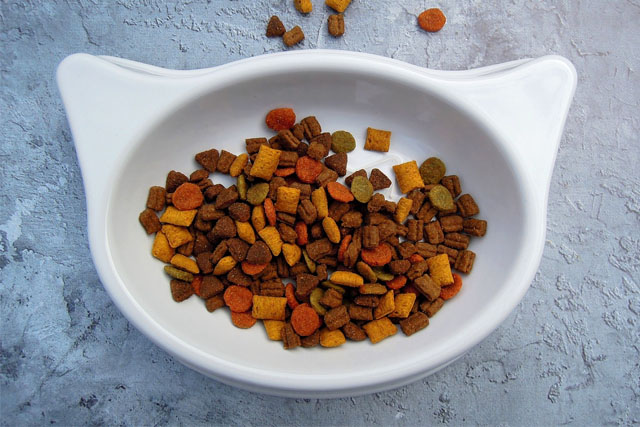



It is not uncommon for cats to develop an obsession with food. There can be several underlying causes for this behavior, including:
1. Hunger: One of the most obvious reasons for a cat's obsession with food is hunger. If a cat is not getting enough food or is not being fed on a regular schedule, they may become fixated on food and constantly beg for more.
2. Boredom: Cats are natural hunters, and when they don't have enough mental and physical stimulation, they may turn to food as a source of entertainment. This can lead to overeating and a constant desire for food.
3. Anxiety or stress: Cats can develop anxiety or stress for various reasons, such as changes in their environment, the addition of a new pet or family member, or even a visit to the veterinarian. In some cases, cats may cope with their anxiety by seeking comfort in food, leading to an obsession.
4. Medical conditions: Certain medical conditions, such as hyperthyroidism or diabetes, can cause an increase in appetite and a cat's obsession with food. If you notice a sudden change in your cat's eating habits, it is important to consult with a veterinarian to rule out any underlying health issues.
5. Learned behavior: Cats are intelligent animals and can quickly learn that begging or meowing for food will result in getting what they want. If a cat has been rewarded with food in the past for this behavior, they may continue to exhibit an obsession with food.
Dealing with a cat's obsession with food can be challenging, but there are several treatment options that can help address the issue:
1. Establish a feeding routine: Cats thrive on routine, so it is important to establish a consistent feeding schedule. Divide their daily food portion into smaller meals throughout the day to prevent them from feeling hungry and obsessing over food.
2. Provide mental and physical stimulation: Engage your cat in interactive play sessions and provide them with toys that stimulate their natural hunting instincts. This will help redirect their focus and energy away from food.
3. Use puzzle feeders: Puzzle feeders are a great way to make mealtime more engaging for your cat. These feeders require them to work for their food, providing mental stimulation and slowing down their eating pace.
4. Monitor their food intake: Keep track of how much food your cat is consuming to ensure they are not overeating. Consult with your veterinarian to determine the appropriate portion size for your cat's age, weight, and activity level.
5. Address any underlying medical conditions: If your cat's obsession with food is due to an underlying medical condition, it is crucial to address and treat the condition. Work closely with your veterinarian to develop a treatment plan that includes proper medication and dietary changes.
6. Avoid reinforcing the behavior: It is important not to reinforce your cat's obsession with food by giving in to their demands or providing excessive treats. Stick to the established feeding routine and avoid giving in to their begging behavior.
7. Seek professional help: If your cat's obsession with food persists despite your efforts, it may be beneficial to seek the help of a professional animal behaviorist. They can provide guidance and develop a customized behavior modification plan to address the issue.
Conclusion
Understanding the causes of a cat's obsession with food is the first step in addressing the issue. By implementing a combination of routine, mental and physical stimulation, and proper monitoring of food intake, you can help your cat overcome their obsession with food. Remember to consult with your veterinarian for any underlying medical conditions and seek professional help if needed. With patience and consistency, you can help your cat develop a healthier relationship with food.
Related posts